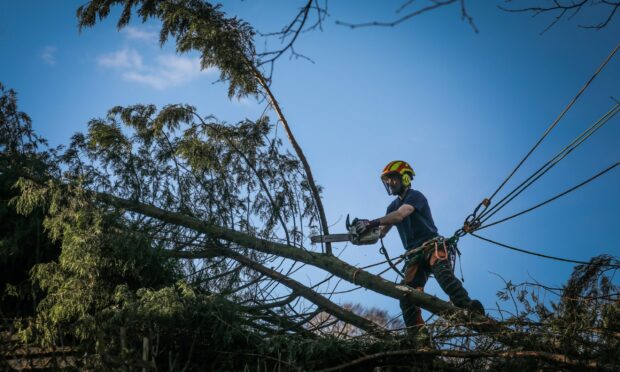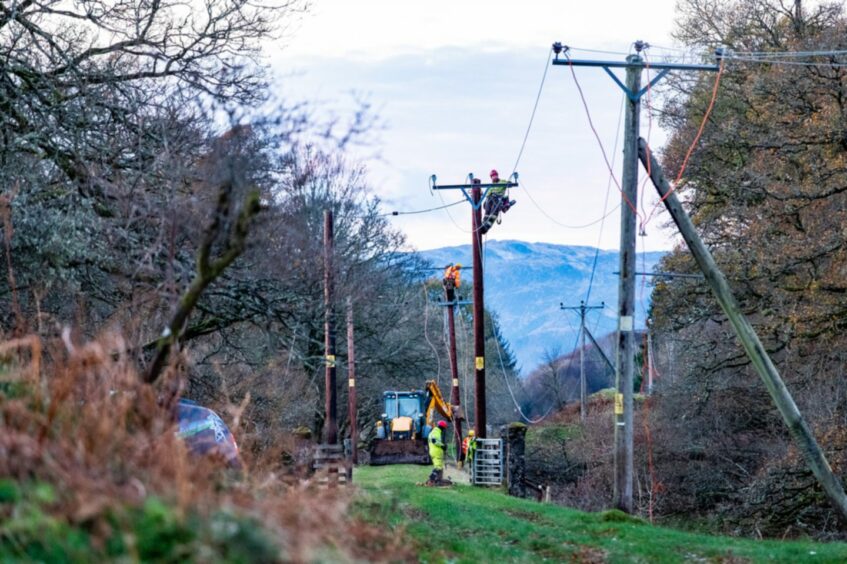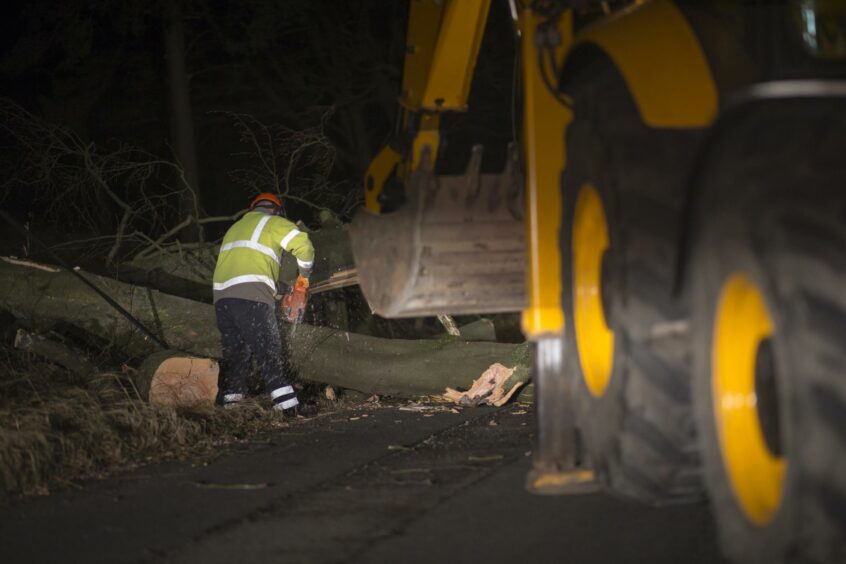Scotland has endured some of the worst storms in years this winter, from Arwen to Dudley and Eunice. With the consequences of climate change intensifying, such severe and often unpredictable weather is set to become more common.
Our national infrastructure is facing extremes of weather that could not have been predicted when it was designed.
Current extremes of weather present a real challenge for modern infrastructure, let alone for something designed and built decades ago.
Investment in more resilient infrastructure, or in innovative measures to protect existing infrastructure, is a cost which businesses cannot avoid if they want to remain compliant with their health and safety duties.
Changes in the weather create new considerations for the likes of power companies, emergency vehicle recovery firms, transport providers and others on the front line which are having to send out employees to do essential jobs during and after extreme weather incidents.
Against this backdrop, employers need to be aware of their legal duties in relation to health and safety.
They need a considered approach to balancing the need to ensure continued delivery of what are often essential public services with the obligation to ensure the safety of both staff and customers.
This can be a tricky balance to achieve, but one that any responsible employer must strive to attain.
Take the relatively recent example of Storm Arwen that swept Aberdeenshire to devastating effect late last year.
There was considerable and understandable pressure on the electricity network providers to maintain power by fixing an unprecedented number of faults as quickly as possible.
That in itself is a health and safety issue because you cannot have vulnerable people – or anyone for that matter – without power, heat and light for a long period of time.
However, such companies also have a legal duty to protect their staff from the risk of injury.
This raises the question of when it becomes too dangerous to send employees out to try to restore power if there is a threat of them getting stuck in deep snow, or being struck by trees and other objects, for example.
There is always going to be a question of judgment around balancing risk in that scenario, with many pressures being brought to bear on those making it.
Another concerning aspect of climate change is the increasing incidence of unpredictable weather all year round, not just in winter – whether that be flooding or summer storms.
This makes it hard for businesses to plan ahead. The forecasting technology that many businesses use was not designed to predict the types of weather we are now experiencing.
While trying to prepare for the impact of climate change on your business may seem daunting, my advice is to approach it like any other aspect of health and safety management.
Make sure that you carry out comprehensive risk assessments that take climate change and the increasing unpredictability of weather into account.
There needs to be a levelling-up of knowledge around the relevant issues and the technology available to allow you to be as ready as possible for events.
It is vital to review existing risk assessments and procedures to reflect the changes that are happening around us.
Look to oil and gas for safety culture
Organisations should also actively promote a culture where employees can say “no” if they feel their safety is being compromised.
We have seen this approach championed in the energy sector over the last 30 years and other sectors can learn from measures they have introduced.
That culture should include everyone, from new recruits to the chief executive, so that everyone in the organisation is clear that nothing, and certainly not profit, is more important than employee safety and wellbeing.
Finally, businesses need to realise that health and safety does not start and finish with a risk assessment and a policy filed away somewhere.
Companies should ensure their systems and processes are regularly updated and are being followed on a daily basis.
Above all, avoid complacency.
Malcolm Gunnyeon is a partner in Denton’s dispute resolution team.



